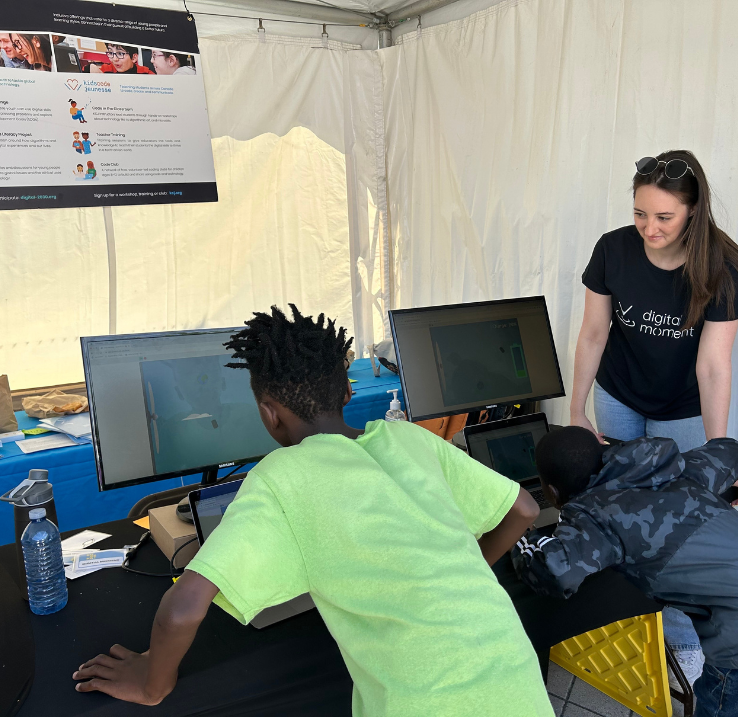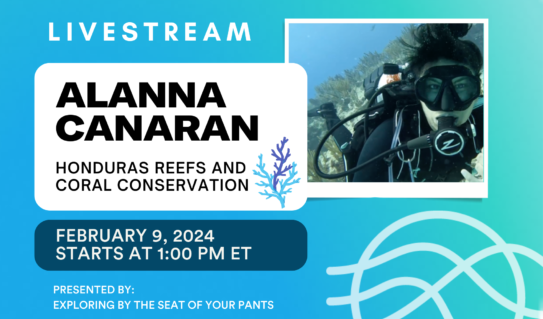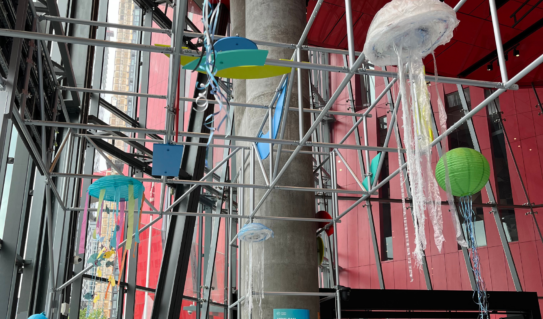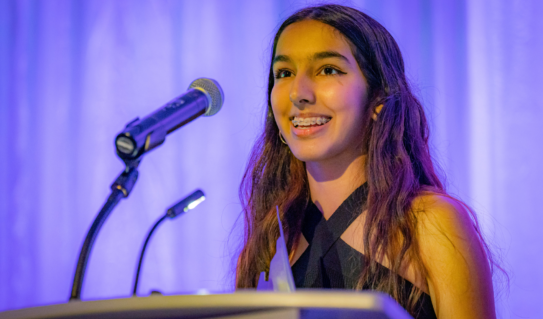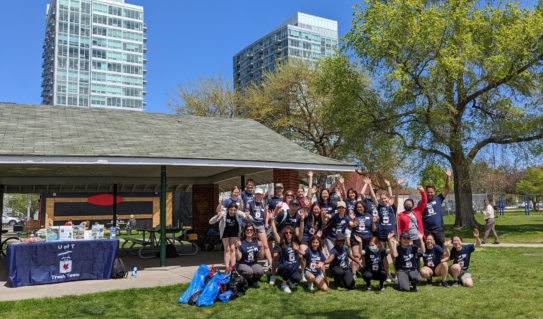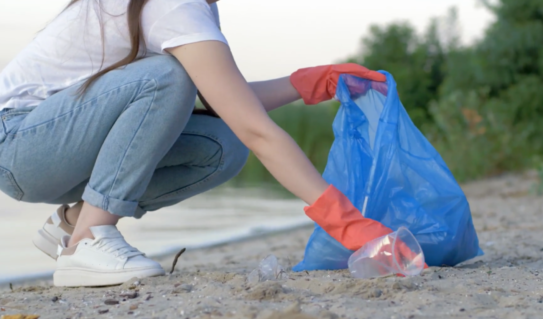Phil Greene: It started as a really small initiative and was focused on making coding and digital skills accessible to youth, in particular underserved communities and girls. We slowly started to expand as we realized there was more and more need. Especially since COVID, we realized that there is a lot to do in the online space. So now, we do a lot of work both in person and online. In person, we go into the classroom and do teacher training or work directly with kids. Online, we have the Digital2030 Challenges, which is a completely virtual experience. We also have the Social Innovation Lab, which is a new project that enables us to connect, listen to, and collaborate with the youth. We want to involve them not just at the end of a product or a service, but also in the ideation, the planning and the production.
Articles
Building a better future, one digital skill at a time with Digital Moment
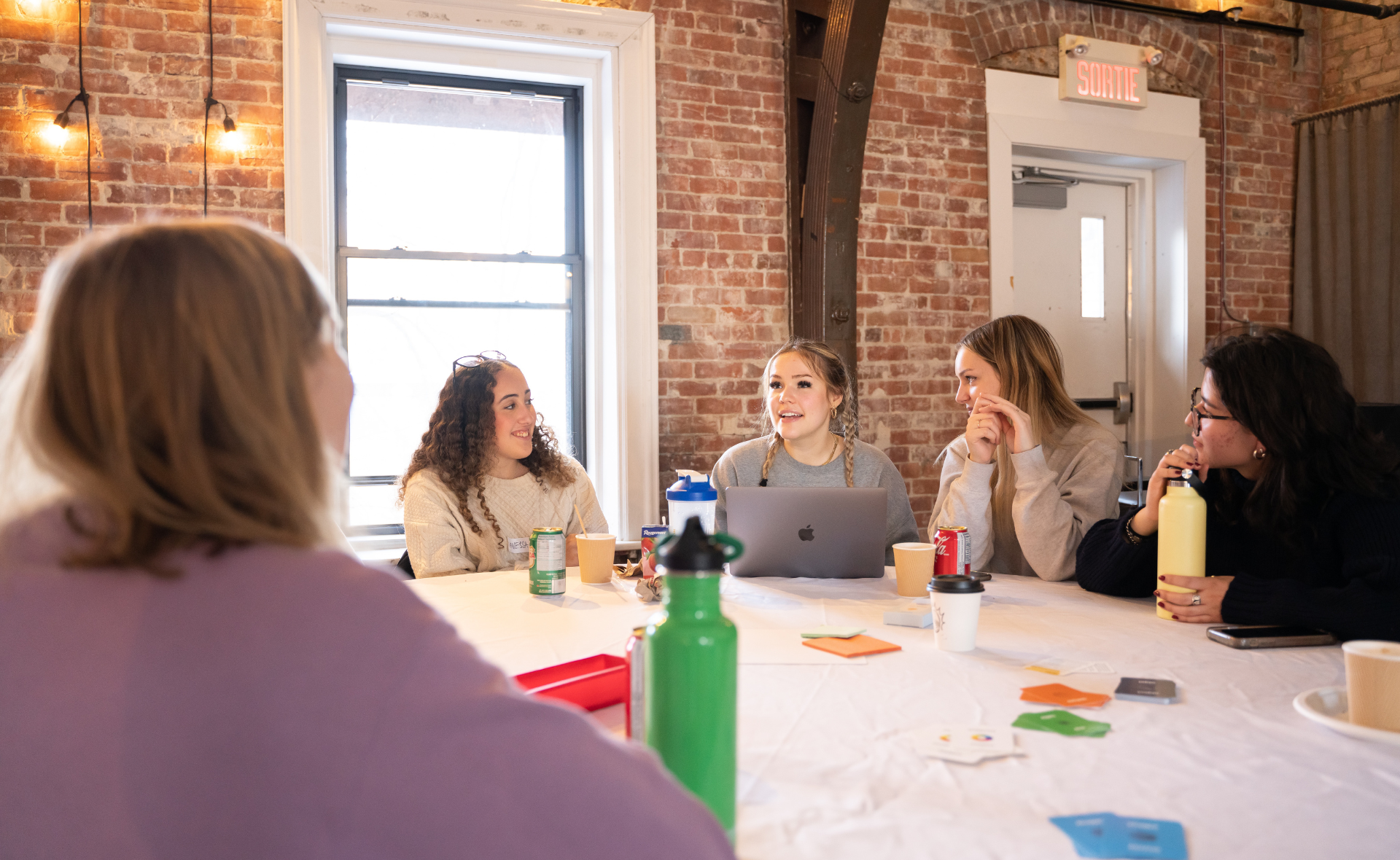
Digital Moment is a “Canadian-based charity and is part of a global network of organizations that work towards mobilizing communities to build a better future through digital skills education.” They create programs and experiences to help young people develop their digital skills like coding, algorithm and data literacy, and enhance their understanding of ethical AI to have a social impact.
Digital Moment has 3 educational programs: Kids Code Jeunesse, Digital2030, and the Social Innovation Lab.
As part of the Digital2030 program, they have been working on the Digital2030 Challenge, which is “a decade-long series of online learning experiences for youth to use coding, data and artificial intelligence to tackle the world’s most pressing problems”
We met with Phil Greene, Lead Web Developer and Interactive Designer, and Linh Kim, Program Specialist, to discuss the Digital2030 Challenge and how digital skills can help youth create positive changes within their communities.
Here is our Q&A with Digital Moment.
The importance of digital skills
How did Digital Moment come about?
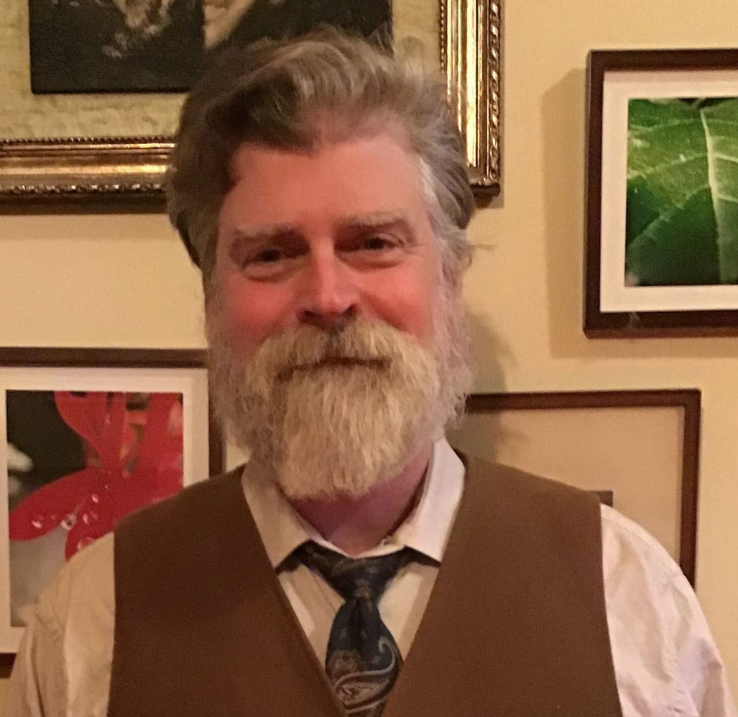
Phil Greene
What is the Digital2030 program and what led to creating it?
Linh Kim: Within the Digital2030 program, we work with youth between 13 to 22. We have 3 initiatives: the Digital2030 Challenge, the Algorithm and Data Literacy Project, which aims to raise awareness to everyone (teachers, educators, parents and young people) what algorithms and data are and how they affect them, and Digital Leaders, which are round table discussions where young people showcase their actions on global issues.
Phil Greene: The Internet is allowing us to have a reach that we never had before and that's really something that comes into play behind the program of Digital2030. We know that in-person offers a different experience to online, but with the Internet, we can have a greater reach. We can now deliver our workshops online so we can reach teachers and students wherever there is the Internet. We also realize that we can do more by offering a self-guided experience rather than relying on somebody to facilitate it. Then, kids and teens can explore topics that would be of interest to them and see how digital skills can really play a role in their lives.
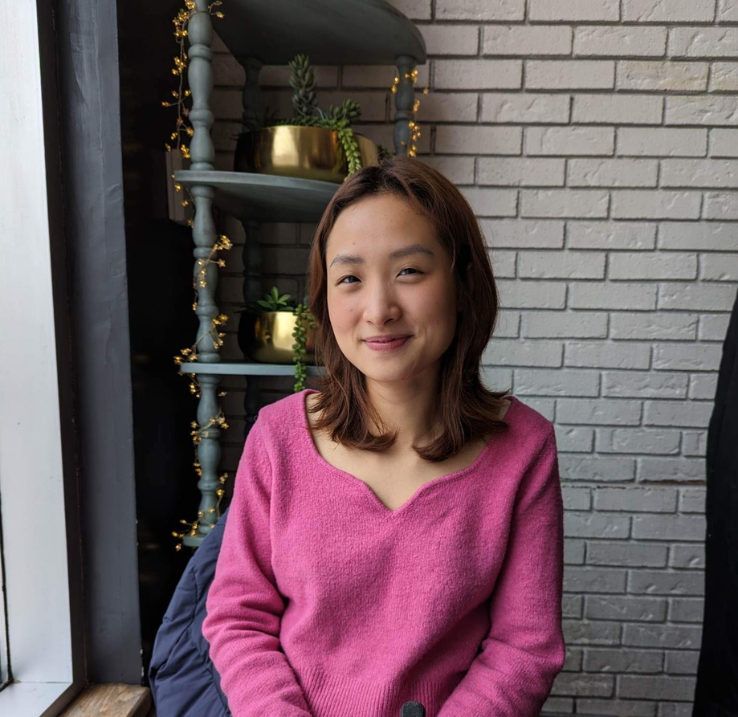
Linh Kim
How can digital skills help youth have a greater social impact?
Linh Kim: Today’s young people are the first to grow up in a world dominated by technology. Similar to knowing how to read and write was crucial in the age of the printing press, knowing digital skills is crucial in understanding today’s digitalized world. There are multiple creative and meaningful ways that youth can apply digital skills in solving a social issue. For example, two youths that we met at the Canada-Wide Science Fair in Edmonton this May created an application, called RefugeePal, to help refugees find essential resources that would aid their re-settlement in Canada. Another youth uses machine learning to predict depression by scanning users’ social media activities. These are just two examples of how digital skills can help build a better future.
Phil Greene: Digital skills also give youth the ability to explore topics that would interest them, help them connect with other people and empathize with them. In our latest Challenge on Reducing Inequality, youth get to hear stories shared from communities all across the world. Then they'll realize that some themes and subjects are global and not just unique to their community. They might say to themselves: “We might have similar issues, but how they manifest might be different in different parts of the world, and so the solutions to them might be different as well”. So we do that by laying all these stories on a world map, making data visualization a meaningful yet fun experience.
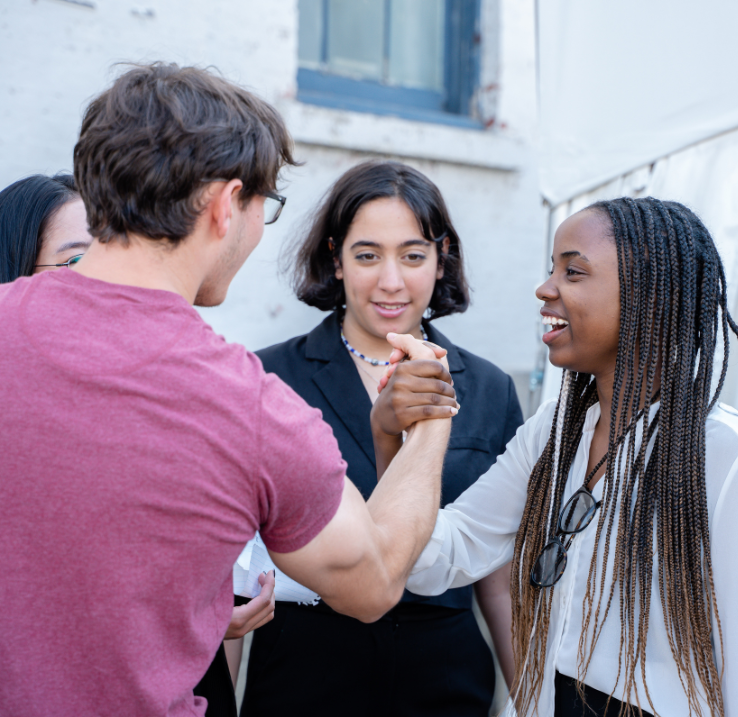
Make a change
How are your work and the Digital2030 Challenge aligned with the United Nations’ Sustainable Development Goals?
Phil Greene: We're a big believer in using technology for good, but what is good? Instead of getting into that position of teaching “what is good”, we look on a global scale for initiatives that are already making positive changes in the world. The UN has the Sustainable Development Goals, which was a focused effort among many countries to improve the quality of life. This is a good framework to align with because it covers many different areas and represents many different communities. When we say “code for good”, we mean that we're aligning to these SDGs.
Linh Kim: This also shows how transferable digital skills are. No matter what domain you're working in, whether it’s fighting climate change, social justice, or bringing quality education to those who need it, you can use digital skills to make that happen within communities.
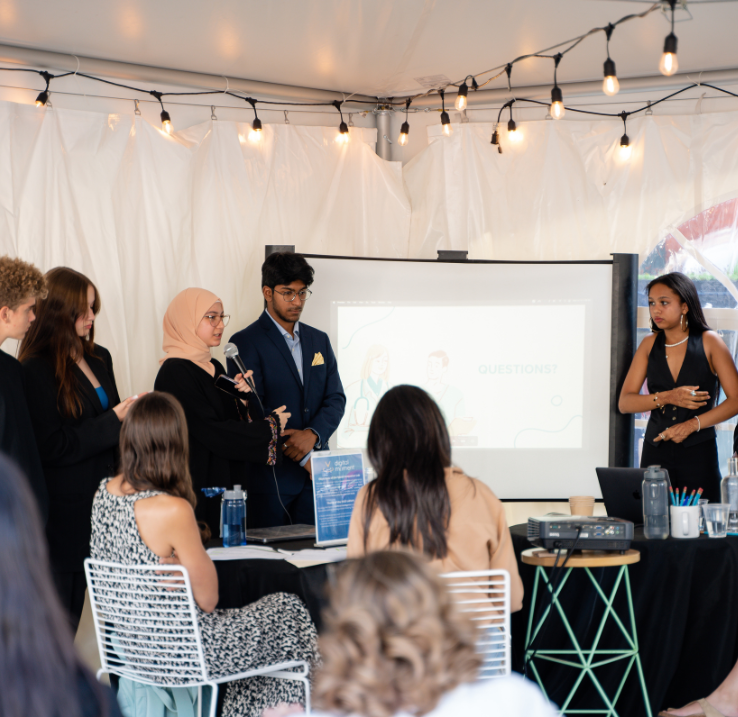
What is the Plastic Challenge?
Phil Greene: We know that plastic is bad, but for a kid or even for adults, what’s reducing 10 straws, 20 straws going to do? In our Challenge, we ask kids to imagine how they can reduce their plastic consumption. Then, we use data visualization to show what that looks like over one month, a year or even 10 years. Most importantly, we show what that looks like across 20 million kids. And suddenly, they realize that it’s not just about them — it’s about the collective impacts of 20 million kids doing the same thing, together, that makes a difference. Another activity is data visualization. We compare big numbers to the weight of animals. When you say you're going to save 10,000 kg of plastic, that number is still a little bit abstract to our young audience. But if we say, that's the equivalent of 10 elephants, suddenly that's a lot!
Can you tell me about the Challenge you are currently working on?
Linh Kim: The first thing that we are very proud to mention is that the topic of this Challenge wasn't decided by only us but in collaboration with young people. We did qualitative and quantitative consultations with youth on what topics they care most passionately about. SDG 10 on “Reduced inequalities” emerged as a critical issue for our youth. Throughout every step of the way, we opened our process of designing the Challenge publicly on social media and at community centers for our audience to take a look, give us their feedback, and join us on our journey. For example, we brought our two prototypes of the Challenge to the YMCA and asked for youth feedback, then we included it because they gave us perspectives that we never would have thought of. The whole journey is a collaborative process between our team and young people. In addition, inequality is a big topic and that is quite subjective to each person’s reality. We minimize introducing our own bias onto the topic by giving young people the spotlight to share their own interpretation of inequality, what it means to them and to showcase their action towards tackling this issue.
The Digital2030 Challenge: Reducing Inequality is now live on our website. We invite youth aged 13-22 to share their stories, learn from others, and discover how technology plays a role in addressing pressing global issues such as inequality.
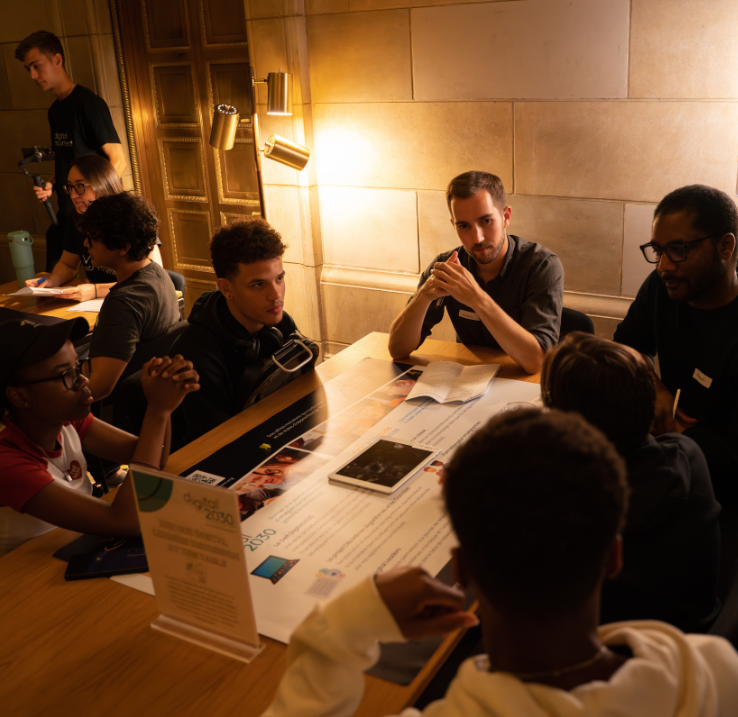
Curious to learn more about Digital Moment? Here are different places where you can find them and explore their many programs and experiences:
On their website Digital2030 and Digital Moment
Digital Moment is always looking for feedback, so don’t be afraid to reach out to them on their social media!
This conversation has been edited and condensed.
Community
Bringing blue learning into Atlantic classrooms

Bringing blue learning into Atlantic classrooms
The importance of ocean literacy: why it matters to us all

The importance of ocean literacy: why it matters to us all
What you need to know about our astonishing ocean

